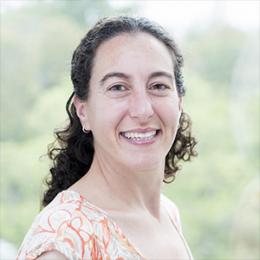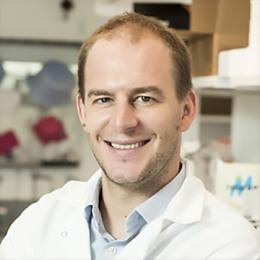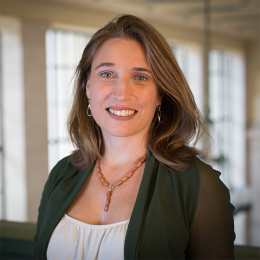
BME Drug Delivery & Nanomedicine
The faculty and students in Cornell biomedical engineering apply engineering principles to design systems that effectively control the spatial and temporal delivery of medicines, to investigate the effects of medicines on cells and tissues, and to evaluate their preclinical and clinical efficacy.
Efforts include systems to target medicines at precise sites, (for example to treat cancers), devices to control the rate at which medicine is made available to the body (for example, injections that last one month or more) and constructs to facilitate specific interactions with systems of cells or to understand their function (for example, to deliver vaccines, to sequence the genome of single cells or to understand the impact of outside influences on cells). The work integrates investigators working across length scales in all fields of engineering and also include investigators in chemistry, cell biology, genetics, immunology, veterinary medicine and human medicine. Resources at Cornell that support these research programs include: the Chemistry Nuclear Magnetic Resonance facility, the Cornell Center for Materials Science, the Cornell Nanofabrication facility and the Cornell Center for Biotechnology. Most projects involve investigators at the Cornell College of Veterinary Medicine and the Weill Cornell College of Medicine.
Faculty research interests

Ilana Brito
Ilana Brito sees the microbiome as a novel entry point to affecting human health. Her lab is developing a suite of approaches to modify microbiome function and to mine the commensal genomes for bioactive molecules to improve health conditions, including chronic inflammation, metabolic disorders, and cardiovascular disease. They are also investigating how to use microvesicles, nanoparticles and engineered probiotics to introduce novel compounds into the microbiome, and how to alter microbiome function using genetic engineering approaches.

Iwijn De Vlaminck
Iwijn De Vlaminck works at the interface of nanotechnology and biology to advance genomic sequencing and to understand gene expression patterns at single cell resolution. Single cell sequencing enables the study of genomic heterogeneity of cells in the context of full tissues and microbe populations in ways not possible with traditional bulk sequencing assays. For example, only a small fraction of the microbes that populate our planet can be propagated in laboratory culture; therefore, little is known about these microbes, other than that they exist. Using single-cell sequencing through the design of new nanofluidic devices, the genomes of these living systems can be investigated to better understand how they work.

Shaoyi Jiang
Shaoyi Jiang’s research focuses on (a) interactions of nanomaterials with the immune system, (b) low-immunogenic viral and non-viral delivery of small molecules, proteins, and genes; (c) immunotherapy, vaccine, and immunosuppression. These studies are built upon their existing highly hydrophilic zwitterionic functional polymers and peptides, with attention to (nano)materials immunogenicity, biocompatibility, and safety. Projects are basic or translational in collaborations with researchers across Cornell campus and at Weill Cornell Medicine.

Alex Kwan
Alex Kwan’s lab is interested in the neurobiology of mental illnesses and drug discovery. To measure effects of drugs in the brain, the lab leverages novel optical microscopy techniques, in concert with in vivo electrophysiology and quantitative behavioral tasks in mice. Our recent studies have revealed the neural plasticity mechanisms for fast-acting antidepressants, including ketamine and serotonergic psychedelics such as psilocybin. The long-term goal is to develop medicines that are fast-acting, safe, and effective for treating mental illnesses.

Jan Lammerding
Jan Lammerding’s lab is developing microfluidic devices to measure (sub-)cellular biomechanics to investigate how changes in cellular and nuclear stiffness can contribute to the pathology of muscular dystrophies, premature aging, and cancer. In addition, the lab is using microfluidics approaches to study the migration of cancer cells, taking advantage of the ability to fabricate precisely defined environments that mimic interstitial pores and spaces in physiological tissues.

David Putnam
David Putnam’s lab focuses the design and synthesis of functional biomaterials for drug and vaccine delivery. For example, the group engineers systems that can deliver multivalent vaccines with just a swab of the cheek. In other work, the Putnam group designs drug delivery systems that can deliver anticancer drugs directly to the tumor cells. The group uses organic polymer chemistry and applied microbiology to make new materials that address unmet medical needs.

Krystyn Van Vliet
Krystyn Van Vliet’s research lab specializes in material chemomechanics – the coupling between chemistry and mechanics at material interfaces. Applications include optimizing materials for renewable energy and developing new materials and methods for cell therapies and drug screening.

Yadong Wang
Yadong Wang’s lab focuses on controlled release of protein drugs, particularly growth factors and cytokines. The biggest challenge for these molecules as drugs is their short half-lives. Our goal is to design vehicles that not only extend the half-life, but also enable local release. The current lead vehicle in our toolbox is a coacervate that self-assembles with the protein drugs using the same mechanism nature uses to anchor proteins to the extracellular matrix. Our goal is to treat diseases in the cardiovascular, nervous, and musculoskeletal systems.
BME Graduate Field Faculty in Drug Delivery & Nanomedicine
Christopher Alabi, caa238@cornell.edu
Susan Daniel, sd386@cornell.edu
Matthew DeLisa, md255@cornell.edu
Monica Guzman, mlg2007@med.cornell.edu
Daniel Heller, dah368@cornell.edu
Ailong Ke, ak425@cornell.edu
Brian Kirby, bk88@cornell.edu
Dan Luo, dl79@cornell.edu
Shu-Bing Qian, sq38@cornell.edu
Alexander Travis, ajt32@cornell.edu
Uli Wiesner, ubw1@cornell.edu
Rong Yang, ryang@cornell.edu

